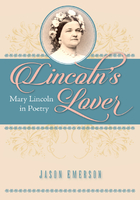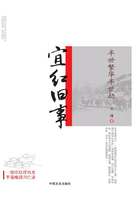Roger had turned over many plans in his mind, by which he thought that he could obtain sufficient money for the purpose he desired to accomplish. His careful grandfather, who had been a merchant in the city, had so tied up the few thousands he had left to his daughter, that although, in case of her death before her husband's, the latter might enjoy the life interest thereof, yet in case of both their deaths, their second son did not succeed to the property until he was five-and-twenty, and if he died before that age the money that would then have been his went to one of his cousins on the maternal side. In short, the old merchant had taken as many precautions about his legacy as if it had been for tens, instead of units of thousands. Of course Roger might have slipped through all these meshes by insuring his life until the specified age; and probably if he had consulted any lawyer this course would have been suggested to him. But he disliked taking any one into his confidence on the subject of his father's want of ready money. He had obtained a copy of his grandfather's will at Doctors' Commons, and he imagined that all the contingencies involved in it would be patent to the light of nature and common sense. He was a little mistaken in this, but not the less resolved that money in some way he would have in order to fulfil his promise to his father, and for the ulterior purpose of giving the squire some daily interest to distract his thoughts from the regrets and cares that were almost weakening his mind. It was 'Roger Hamley, Senior Wrangler and Fellow of Trinity, to the highest bidder, no matter what honest employment,' and presently it came down to 'any bidder at all.'
Another perplexity and distress at this time weighed upon Roger. Osborne, heir to the estate, was going to have a child. The Hamley property was entailed on 'heirs male born in lawful wedlock.' Was the 'wedlock' lawful? Osborne never seemed to doubt that it was—never seemed, in fact, to think twice about it. And if he, the husband, did not, how much less did Aimee, the trustful wife? Yet who could tell how much misery any shadows of illegality might cast into the future? One evening Roger, sitting by the languid, careless, dilettante Osborne, began to question him as to the details of the marriage. Osborne knew instinctively at what Roger was aiming. It was not that he did not desire perfect legality in justice to his wife; it was that he was so indisposed at the time that he hated to be bothered. It was something like the refrain of Gray's Scandinavian Prophetess: 'Leave me, leave me to repose.'
'But do try and tell me how you managed it.'
'How tiresome you are, Roger,' put in Osborne.
'Well, I dare say I am. Go on!'
'I've told you Morrison married us. You remember old Morrison at Trinity?'
'Yes; as good and blunder-headed a fellow as ever lived.'
'Well, he's taken orders; and the examination for priest's orders fatigued him so much that he got his father to give him a hundred or two for a tour on the Continent. He meant to get to Rome, because he heard that there were such pleasant winters there. So he turned up at Metz in August.'
'I don't see why.'
'No more did he. He never was great in geography, you know; and somehow he thought that Metz, pronounced French fashion, must be on the road to Rome. Some one had told him so in fun. However, it was very well for me that I met with him there for I was determined to be married, and that without loss of time.'
'But Aimee is a Catholic?'
'That's true! but you see I am not. You don't suppose I would do her any wrong, Roger?' asked Osborne, sitting up in his lounging-chair, and speaking rather indignantly to Roger, his face suddenly flushing red.
'No! I'm sure you would not mean it; but you see there's a child coming, and this estate is entailed on "heirs male." Now, I want to know if the marriage is legal or not? and it seems to me it's a ticklish question.'
'Oh!' said Osborne, falling back into repose, 'if that's all, I suppose you're next heir male, and I can trust you as I can myself. You know my marriage is bona fide in intention, and I believe it to be legal in fact. We went over to Strasbourg; Aimee picked up a friend—a good middle-aged Frenchwoman—who served half as bridesmaid, half as chaperone, and then we went before the mayor—prefet—what do you call them? I think Morrison rather enjoyed the spree. I signed all manner of papers in the prefecture; I did not read them over, for fear lest I could not sign them conscientiously. It was the safest plan. Aimee kept trembling so I thought she would faint, and then we went off to the nearest English chaplaincy, Carlsruhe, and the chaplain was away, so Morrison easily got the loan of the chapel, and we were married the next day.'
'But surely some registration or certificate was necessary?'
'Morrison said he would undertake all those forms; and he ought to know his own business.' I know I tipped him pretty well for the job.'
'You must be married again,' said Roger, after a pause, 'and that before the child is born. Have you got a certificate of the marriage?'
'I dare say Morrison has got it somewhere. But I believe I'm legally married according to the laws both of England and France; I really do, old fellow. I've got the prefet's papers somewhere.'
'Never mind! you shall be married again in England. Aimee goes to the Roman Catholic chapel at Prestham, does not she?'
'Yes. She is so good I would not disturb her in her religion for the world.'
'Then you shall be married both there and at the church of the parish in which she lives as well,' said Roger, decidedly.
'It's a great deal of trouble, unnecessary trouble, and unnecessary expense, I should say,' said Osborne. 'Why can't you leave well alone? Neither Aimee nor I are of the sort of stuff to turn scoundrels and deny the legality of our marriage, and if the child is a boy and my father dies, and I die, why I'm. sure you'll do him justice, as sure as I am of myself, old fellow!'
'But if I die into the bargain? Make a hecatomb of the present Hamleys all at once, while you are about it. Who succeeds as heir male?'
Osborne thought for a moment. 'One of the Irish Hamleys, I suppose. I fancy they are needy chaps. Perhaps you're right. But what need to have such gloomy forebodings?'
'The law makes one have foresight in such affairs,' said Roger. 'So I'll go down to Aimee next week when I'm in town, and I'll make all necessary arrangements before you come. I think you'll be happier if it is all done.'
'I shall be happier if I've a chance of seeing the little woman, that I grant you. But what is taking you up to town? I wish I'd money to run about like you, instead of being shut up for ever in this dull old house.'
Osborne was apt occasionally to contrast his position with Roger's in a tone of complaint, forgetting that both were the results of character, and also that out of his income Roger gave up so large a portion for the maintenance of his brother's wife. But if this ungenerous thought of Osborne's had been set clearly before his conscience, he would have smote his breast and cried 'Mea culpa' with the best of them; it was only that he was too indolent to keep an unassisted conscience.
'I should not have thought of going up,' said Roger, reddening as if he had been accused of spending another's money instead of his own, 'if I had not had to go up on business. Lord Hollingford has written for me; he knows my great wish for employment, and has heard of something which he considers suitable; there's his letter if you care to read it. But it does not tell anything definitely.'
Osborne read the letter and returned it to Roger. After a moment or two of silence he said,—'Why do you want money? Are we taking too much from you? It's a great shame of me; but what can I do? Only suggest a career for me, and I'll follow it to-morrow.' He spoke as if Roger had been reproaching him.
'My dear fellow, don't get those notions into your head! I must do something for myself sometimes, and I have been on the look-out. Besides, I want my father to go on with his drainage; it would do good both to his health and his spirits. If I can advance any part of the money requisite, he and you shall pay me interest until you can return the capital.'
'Roger, you're the providence of the family,' exclaimed Osborne, suddenly struck by admiration at his brother's conduct, and forgetting to contrast it with his own.
So Roger went up to London and Osborne followed him, and for two or three weeks the Gibsons saw nothing of the brothers. But as wave succeeds to wave, so interest succeeds to interest. 'The family,' as they were called, came down for their autumn sojourn at the Towers; and again the house was full of visitors, and the Towers' servants, and carriages, and liveries were seen in the two streets of Hollingford, just as they might have been seen for scores of autumns past.
So runs the round of life from day to day. Mrs. Gibson found the chances of intercourse with the Towers rather more personally exciting than Roger's visits, or the rarer calls of Osborne Hamley. Cynthia had an old antipathy to the great family who had made so much of her mother and so little of her; and whom she considered as in some measure the cause why she had seen so little of her mother in the days when the little girl had craved for love and found none. Moreover, Cynthia missed her slave, although she did not care for Roger one thousandth part of what he did for her; yet she had found it not unpleasant to have a man whom she thoroughly respected, and whom men in general respected, the subject of her eye, the glad ministrant to each scarce spoken wish, a person in whose sight all her words were pearls or diamonds, all her actions heavenly graciousness, and in whose thoughts she reigned supreme. She had no modest unconsciousness about her; and yet she was not vain. She knew of all this worship; and when from circumstances she no longer received it she missed it. The Earl and the Countess, Lord Hollingford and Lady Harriet, lords and ladies in general, liveries, dresses, bags of game, and rumours of riding parties were as nothing to her as compared to Roger's absence. And yet she did not love him. No, she did not love him. Molly knew that Cynthia did not love him. Molly grew angry with her many and many a time as the conviction of this fact was forced upon her. Molly did not know her own feelings; Roger had no overwhelming interest in what they might be; while his very life-breath seemed to depend on what Cynthia felt and thought. Therefore Molly had keen insight into her 'sister's' heart; and she knew that Cynthia did not love Roger, Molly could have cried with passionate regret at the thought of the unvalued treasure lying at Cynthia's feet; and it would have been a merely unselfish regret. It was the old fervid tenderness. 'Do not wish for the moon, O my darling, for I cannot give it thee.' Cynthia's love was the moon Roger yearned for; and Molly saw that it was far away and out of reach, else would she have strained her heart-chords to give it to Roger.
'I am his sister,' she would say to herself. 'That old bond is not done away with, though he is too much absorbed by Cynthia to speak about it just now. His mother called me "Fanny;" it was almost like an adoption. I must wait and watch, and see if I can do anything for my brother.'
One day Lady Harriet came to call on the Gibsons, or rather on Mrs Gibson, for the latter retained her old jealousy if any one else in Hollingford was supposed to be on intimate terms at the great house, or in the least acquainted with their plans. Mr. Gibson might possibly know as much, but then he was professionally bound to secrecy. Out of the house she considered Mr. Preston as her rival, and he was aware that she did so, and delighted in teasing her by affecting a knowledge of family plans and details of affairs of which she was not aware. Indoors she was jealous of the fancy Lady Harriet had evidently taken for her stepdaughter, and she contrived to place quiet obstacles in the way of a too frequent intercourse between the two. These obstacles were not unlike the shield of the knight in the old story; only instead of the two sides presented to the two travellers approaching it from opposite quarters, one of which was silver, and one of which was gold, Lady Harriet saw the smooth and shining yellow radiance, while poor Molly only perceived a dull and heavy lead. To Lady Harriet it was 'Molly is gone out; she will be so sorry to miss you, but she was obliged to go to see some old friends of her mother's whom she ought not to neglect: as I said to her, constancy is everything. It is Sterne, I think, who says, "Thine own and thy mother's friends forsake not." But, dear Lady Harriet, you'll stop till she comes home, won't you? I know how fond you are of her. In fact' (with a little surface playfulness) 'I sometimes say you come more to see her than your poor old Clare.'
To Molly it had previously been,—
'Lady Harriet is coming here this morning. I can't have any one else coming in. Tell Maria to say I'm not at home. Lady Harriet has always so much to tell me. Dear Lady Harriet! I've known all her secrets since she was twelve years old. You two girls must keep out of the way. Of course she'll ask for you, out of common civility; but you would only interrupt us if you came in, as you did the other day;'—now addressing Molly—'I hardly like to say so, but I thought it was very forward.'
'Maria told me she had asked for me,' put in Molly, simply.
'Very forward indeed!' continued Mrs. Gibson, taking no further notice of the interruption, except to strengthen the words to which Molly's little speech had been intended as a correction.
'I think this time I must secure her ladyship from the chances of such an intrusion, by taking care that you are out of the house, Molly. You had better go to the Holly Farm, and speak about those damsons I ordered, and which have never been sent.'
'I'll go,' said Cynthia. 'It's far too long a walk for Molly; she's had a bad cold, and is not as strong as she was a fortnight ago. I delight in long walks. If you want Molly out of the way, mamma, send her to the Miss Brownings'—they are always glad to see her.'
'I never said I wanted Molly out of the way, Cynthia,' replied Mrs Gibson. 'You always put things in such an exaggerated—I should almost say, so coarse a manner. I am sure, Molly, my love, you could never have so misunderstood me; it is only on Lady Harriet's account.'
'I don't think I can walk as far as the Holly Farm; papa would take the message; Cynthia need not go.'
'Well! I'm the last person in the world to tax any one's strength; I'd sooner never see damson preserve again. Suppose you do go and see Miss Browning; you can pay her a nice long call—you know she likes that— and ask after Miss Phoebe's cold from me, you know. They were friends of your mother's, my dear, and I would not have you break off old friendships for the world. "Constancy above everything" is my motto, as you know, and the memory of the dead ought always to be cherished.'
'Now, mamma, where am I to go?' asked Cynthia. 'Though Lady Harriet does not care for me as much as she does for Molly—indeed, quite the contrary I should say—yet she might ask after me, and I had better be safely out of the way.'
'True!' said Mrs. Gibson, meditatively, yet unconscious of any satire in Cynthia's speech.—'She is much less likely to ask for you, my dear: I almost think you might remain in the house, or you might go to the Holly Farm; I really do want the damsons; or you might stay here in the dining-room, you know, so as to be ready to arrange lunch prettily, if she does take a fancy to stay for it. She is very fanciful, is dear Lady Harriet! I would not like her to think we made any difference in our meals because she stayed. "Simple elegance," as I tell her, "always is what we aim at." But still you could put out the best service, and arrange some flowers, and ask cook what there is for dinner that she could send us for lunch, and make it all look pretty, and impromptu, and natural. I think you had better stay at home, Cynthia, and then you could fetch Molly from Miss Brownings' in the afternoon, you know, and you two could take a walk together.'
'After Lady Harriet was fairly gone! I understand, mamma. Off with you, Molly. Make haste, or Lady Harriet may come and ask for you as well as mamma. I'll take care and forget where you are going to, so that no one shall learn from me where you are, and I'll answer for mamma's loss of memory.'
'Child! what nonsense you talk; you quite confuse me with being so silly,' said Mrs. Gibson, fluttered and annoyed as she usually was with the Lilliputian darts' Cynthia flung at her. She had recourse to her accustomed feckless piece of retaliation—bestowing some favour on Molly; and this did not hurt Cynthia one whit.
'Molly, darling, there's a very cold wind, though it looks so fine. You had better put on my Indian shawl; and it will look so pretty, too, on your grey gown—scarlet and grey—it's not everybody I would lend it to, but you're so careful.'
'Thank you,' said Molly: and she left Mrs. Gibson in careless uncertainty as to whether her offer would be accepted or not.
Lady Harriet was sorry to miss Molly, as she was fond of the girl; but as she perfectly agreed with Mrs. Gibson's truisms about 'constancy' and 'old friends,' she saw no occasion for saying any more about the affair, but sate down in a little low chair with her feet on the fender. This said fender was made of bright, bright steel, and was strictly tabooed to all household and plebeian feet; indeed the position, if they assumed it, was considered low-bred and vulgar.
'That's right, dear Lady Harriet! you can't think what a pleasure it is to me to welcome you at my own fireside, into my humble home.'
'Humble! now, Clare, that's a little bit of nonsense, begging your pardon. I don't call this pretty little drawing-room a bit of a "humble home." It is as full of comforts, and of pretty things too, as any room of its size can be.'
'Ah! how small you must feel it! Even I had to reconcile myself to it at first.'
'Well! perhaps your school-room was larger, but remember how bare it was, how empty of anything but deal tables, and forms, and mats. Oh, indeed, Clare, I quite agree with mamma, who always says you have done very well for yourself; and Mr. Gibson too! What an agreeable, well- informed man!'
'Yes, he is,' said his wife, slowly, as if she did not like to relinquish her role of a victim to circumstances quite immediately. 'He is very agreeable, very; only we see so little of him; and of course he comes home tired and hungry, and not inclined to talk to his own family, and apt to go to sleep.'
'Come, come!' said Lady Harriet, 'I'm going to have my turn now. We've had the complaint of a doctor's wife, now hear the moans of a peer's daughter. Our house is so overrun with visitors; and literally to-day I have come to you for a little solitude.'
'Solitude!' exclaimed Mrs. Gibson. 'Would you rather be alone?' slightly aggrieved.
'No, you dear silly woman; my solitude requires a listener, to whom I may say, "How sweet is solitude." But I am tired of the responsibility of entertaining. Papa is so open-hearted, he asks every friend he meets with to come and pay us a visit. Mamma is really a great invalid, but she does not choose to give up her reputation for good health, having always considered illness a want of self-control. So she gets wearied and worried by a crowd of people who are all of them open-mouthed for amusement of some kind; just like a brood of fledglings in a nest; so I have to be parent-bird, and pop morsels into their yellow leathery bills, to find them swallowed down before I can think of where to find the next. Oh, it's "entertaining" in the largest, literalest, dreariest sense of the word. So I have told a few lies this morning, and come off here for quietness and the comfort of complaining!'
Lady Harriet threw herself back in her chair, and yawned; Mrs. Gibson took one of her ladyship's hands in a soft sympathizing manner, and murmured, 'Poor Lady Harriet!' and then she purred affectionately.
After a pause Lady Harriet started up and said,—'I used to take you as my arbiter of morals when I was a little girl. Tell me, do you think it wrong to tell lies?'
'Oh, my dear! how can you ask such questions?—of course it is very wrong,—very wicked indeed, I think I may say. But I know you were only joking when you said you had told lies.'
'No, indeed, I was not. I told as plump fat lies as you would wish to hear. I said I "was obliged to go into Hollingford on business," when the truth was there was no obligation in the matter, only an insupportable desire of being free from my visitors for an hour or two, and my only business was to come here, and yawn, and complain, and lounge at my leisure. I really think I'm unhappy at having told a story, as children express it.'
'But, my dear Lady Harriet,' said Mrs. Gibson, a little puzzled as to the exact meaning of the words that were trembling on her tongue, 'I am sure you thought that you meant what you said, when you said it.' 'No, I didn't,' put in Lady Harriet.
'And besides, if you didn't, it was the fault of the tiresome people who drove you into such straits—yes, it was certainly their fault, not yours—and then you know the conventions of society—ah, what trammels they are!'
Lady Harriet was silent for a minute or two; then she said,—'Tell me, Clare; you've told lies sometimes, haven't you?'
'Lady Harriet! I think you might have known me better; but I know you don't mean it, dear.'
'Yes, I do. You must have told white lies, at any rate. How did you feel after them?'
'I should have been miserable if I ever had. I should have died of self-reproach. "The truth, the whole truth, and nothing but the truth," has always seemed to me such a fine passage. But then I have so much that is unbending in my nature, and in our sphere of life there are so few temptations. If we are humble, we are also simple, and unshackled by etiquette.'
'Then you blame me very much? If somebody else will blame me, I shan't be so unhappy at what I said this morning.'
'I am sure I never blamed you, not in my innermost heart, dear Lady Harriet. Blame you, indeed! That would be presumption in me.'
'I think I shall set up a confessor! and it shan't be you, Clare, for you have always been only too indulgent to me.'
After a pause she said,—'Can you give me some lunch, Clare? I don't mean to go home till three. My "business" will take me till then, as the people at the Towers are duly informed.'
'Certainly. I shall be delighted! but you know we are very simple in our habits.'
'Oh, I only want a little bread and butter, and perhaps a slice of cold meat—you must not give yourself any trouble, Clare—perhaps you dine now? let me sit down just like one of your family.'
'Yes, you shall; I won't make any alteration;—it will be so pleasant to have you sharing our family meal, dear Lady Harriet. But we dine late, we only lunch now. How low the fire is getting; I really am forgetting everything in the pleasure of this tete-a-tete!'
So she rang twice; with great distinctness, and with a long pause between the rings. Maria brought in coals.
But the signal was as well understood by Cynthia as the 'Hall of Apollo' was by the servants of Lucullus. The brace of partridges that were to have been for the late dinner were instantly put down to the fire; and the prettiest china put out, and the table decked with flowers and fruit, arranged with all Cynthia's usual dexterity and taste. So that when the meal was announced, and Lady Harriet entered the room, she could not but think her hostess's apologies had been quite unnecessary; and be more and more convinced that Clare had done very well for herself. Cynthia now joined the party, pretty and elegant as she always was; but somehow she did not take Lady Harriet's fancy; she only noticed her on account of her being her mother's daughter. Her presence made the conversation more general, and Lady Harriet gave out several pieces of news, none of them of any great importance to her, but as what had been talked about by the circle of visitors assembled at the Towers.
'Lord Hollingford ought to have been with us,' she said, amongst other things; 'but he is obliged, or fancies himself obliged, which is all the same thing, to stay in town about this Crichton legacy!'
'A legacy? To Lord Hollingford? I am so glad!'
'Don't be in a hurry to be glad! It's nothing for him but trouble. Did not you hear of that rich eccentric Mr. Crichton, who died some time ago, and—fired by the example of Lord Bridgewater, I suppose—left a sum of money in the hands of trustees, of whom my brother is one, to send out a man with a thousand fine qualifications, to make a scientific voyage, with a view to bringing back specimens of the fauna of distant lands, and so forming the nucleus of a museum which is to be called the Crichton Museum, and so perpetuate the founder's name. Such various forms does man's vanity take! Sometimes it stimulates philanthropy; sometimes a love of science!'
'It seems to me a very laudable and useful object, I am sure,' said Mrs. Gibson, safely.
'I daresay it is, taking it from the public-good view. But it is rather tiresome to us privately, for it keeps Hollingford in town—or between it and Cambridge—and each place as dull and empty as can be, just when we want him down at the Towers. The thing ought to have been decided long ago, and there's some danger of the legacy lapsing. The two other trustees have run away to the Continent, feeling, as they say, the utmost confidence in him, but in reality shirking their responsibilities. However, I believe he likes it, so I ought not to grumble. He thinks he is going to be very successful in the choice of his man—and he belongs to this county, too,—young Hamley of Hamley, if he can only get his college to let him go, for he's a Fellow of Trinity, Senior Wrangler or something; and they're not so foolish as to send their crack man to be eaten up by lions and tigers!'
'It must be Roger Hamley!' exclaimed Cynthia, her eyes brightening, and her cheeks flushing.
'He's not the eldest son; he can scarcely be called Hamley of Hamley!' said Mrs. Gibson.
'Hollingford's man is a Fellow of Trinity, as I said before.'
'Then it is Mr. Roger Hamley,' said Cynthia; 'and he's up in London about some business! What news for Molly when she comes home!'
'Why, what has Molly to do with it?' asked Lady Harriet. 'Is—?' and she looked into Mrs. Gibson's face for an answer. Mrs. Gibson in reply gave an intelligent and very expressive glance at Cynthia, who however did not perceive it.
'Oh, no! not at all'—and Mrs. Gibson nodded a little at her daughter, as much as to say, 'If any one, that.'
Lady Harriet began to look at the pretty Miss Kirkpatrick with fresh interest; her brother had spoken in such a manner of this young Mr Hamley that every one connected with the Phoenix was worthy of observation. Then, as if the mention of Molly's name had brought her afresh into her mind, Lady Harriet said,—'And where is Molly all this time? I should like to see my little mentor. I hear she is very much grown since those days.'
'Oh! when she once gets gossipping with the Miss Brownings, she never knows when to come home,' said Mrs. Gibson.
'The Miss Brownings? Oh! I am so glad you named them! I am very fond of them. Pecksy and Flapsy; I may call them so in Molly's absence. I'll go and see them before I go home, and then perhaps I shall see my dear little Molly too. Do you know, Clare, I have quite taken a fancy to that girl!'
So Mrs. Gibson, after all her precautions, had to submit to Lady Harriet's leaving her half-an-hour earlier than she otherwise would have done in order to 'make herself common' (as Mrs. Gibson expressed it) by calling on the Miss Brownings.
But Molly had left before Lady Harriet arrived.
Molly went the long walk to the Holly Farm to order the damsons out of a kind of penitence. She had felt conscious of anger at being sent out of the house by such a palpable manoeuvre as that which her stepmother had employed. Of course she did not meet Cynthia, so she went alone along the pretty lanes, with grassy sides and high hedge-banks not at all in the style of modern agriculture. At first she made herself uncomfortable with questioning herself as to how far it was right to leave unnoticed the small domestic failings—the webs, the distortions of truth which had prevailed in their household ever since her father's second marriage. She knew that very often she longed to protest, but did not do it, from the desire of sparing her father any discord; and she saw by his face that he, too, was occasionally aware of certain things that gave him pain, as showing that his wife's standard of conduct was not as high as he would have liked. It was a wonder to Molly if this silence was right or wrong. With a girl's want of toleration, and want of experience to teach her the force of circumstances, and of temptation, she had often been on the point of telling her stepmother some forcible home truths. But possibly her father's example of silence, and often some piece of kindness on Mrs. Gibson's part (for after her way, and when in a good temper, she was very kind to Molly), made her hold her tongue.
That night at dinner Mrs. Gibson recounted the conversation between herself and Lady Harriet, giving it a very strong individual colouring, as was her wont, and telling nearly the whole of what had passed, although implying that there was a great deal said that was so purely confidential, that she was bound in honour not to repeat it. Her three auditors listened to her without interrupting her much—indeed, without bestowing extreme attention on what she was saying, until she came to the fact of Lord Hollingford's absence in London, and the reason for it.
'Roger Hamley going off on a scientific expedition!' exclaimed Mr Gibson, suddenly awakened into vivacity.
'Yes. At least it is not settled finally; but as Lord Hollingford is the only trustee who takes any interest—and being Lord Cumnor's son— it is next to certain.'
'I think I must have a voice in the matter,' said Mr. Gibson; and he relapsed into silence, keeping his ears open, however, henceforward.
'How long will he be away?' asked Cynthia. 'We shall miss him sadly.'
Molly's lips formed an acquiescing 'yes' to this remark, but no sound was heard. There was a buzzing in her ears as if the others were going on with the conversation, but the words they uttered seemed indistinct and blurred; they were merely conjectures, and did not interfere with the one great piece of news. To the rest of the party she appeared to be eating her dinner as usual, and, if she were silent, there was one listener the more to Mrs. Gibson's stream of prattle, and Mr. Gibson's and Cynthia's remarks.















